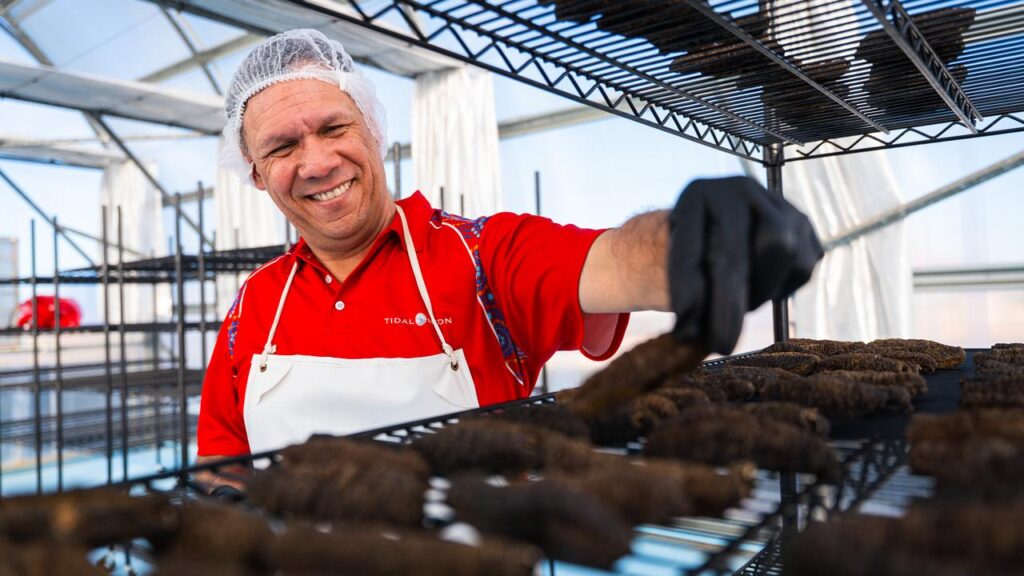Unique fishery recognised in ‘unbelievable’ first
Keira Jenkins |

The future of his people and Country are front of mind for the inaugural winner of the Prime Minister’s prize for Aboriginal and Torres Strait Islander knowledge systems.
Awarded for the first time as part of the Prime Minister’s Science Prizes on Monday, the accolade recognises the contributions Indigenous knowledge systems have made to Australia.
The recipient, Michael Wear, founded Australia’s first Indigenous-owned and led sea cucumber fishery and marine restoration enterprise in 2017.
Tidal Moon’s Aboriginal divers sustainably harvest healthy seagrass, and replant in areas where damage has occurred.

Drawing on generations of knowledge of the region, Professor Wear, through Tidal Moon is also harvesting sea cucumbers, aiming to revitalise the country’s first export industry.
It was “unbelievable” to be the first to win the Prime Minister’s prize for Aboriginal and Torres Strait Islander knowledge systems for his work, Prof Wear said.
“I’m going to be the first but I don’t want to be the last one,” he told AAP.
“I’ll make sure I do my bit to make sure this continues.”
Prof Wear’s work in seagrass conservation and restoration had been “ignited” by a heatwave in 2011 and 2012, which severely impacted the biodiversity of Prof Wear’s Malgana Country at Shark Bay, in Western Australia.
While traditional Aboriginal knowledge was missing from the initial efforts to manage the impacts of this heatwave, Prof Wear said local Malgana people had noticed something happening to sea cucumbers at this time.

“There’s always trade-offs in nature,” he said.
“As Indigenous people we see the trade-off and one thing we noticed was during the heatwave the sea cucumbers grew in size and they grew in numbers.
“There’s a symbiotic relationship between sea grass and sea cucumbers so we had to develop a model, bringing that into account, on repairing the damage.”
At the heart of Tidal Moon, Prof Wear said, was “human capital”, developing the skills needed to build a workforce who could continue to care for Country for years to come, and safeguarding the economic future of his people.
“The more we train our people who come out of these disasters the better it’ll be for the next generation and the generation after that,” he said.
“I’m thinking ahead, I’m thinking about when I’m dead and gone, what can we leave behind.”
AAP